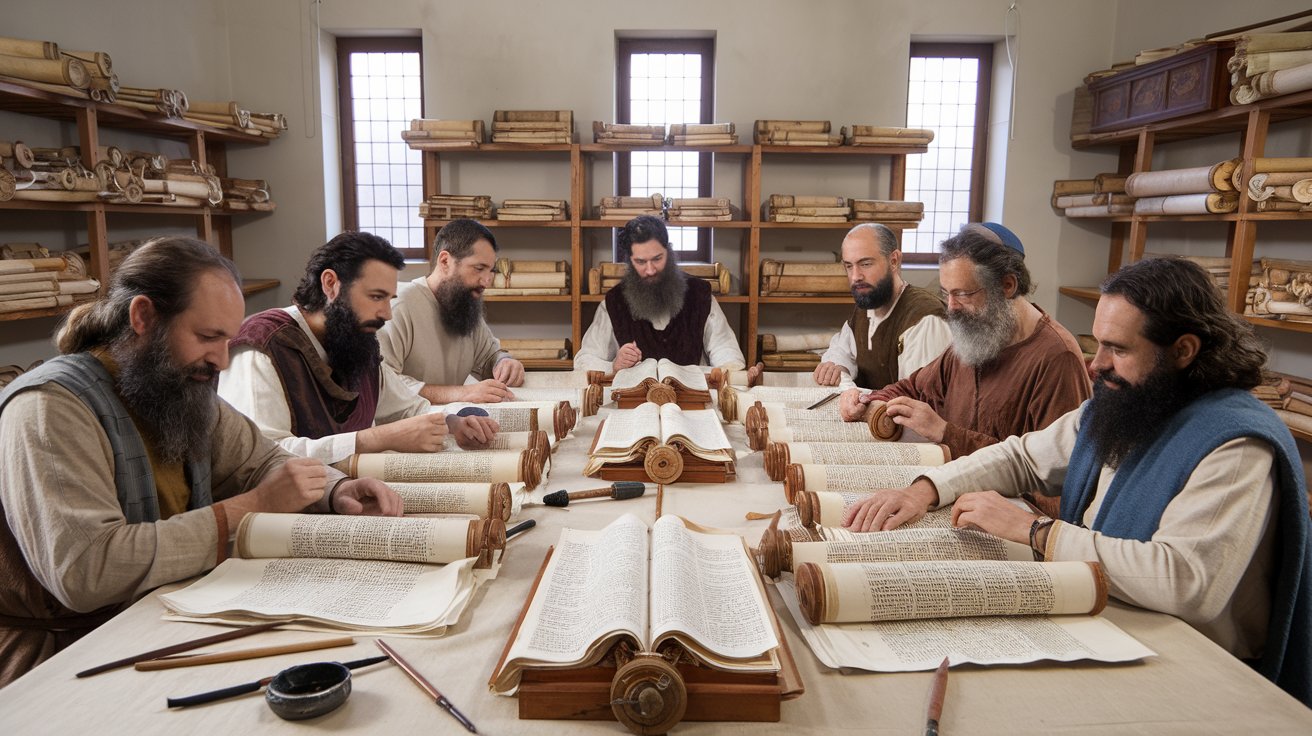The Role of Scribes in Hebrew Culture
Scribes played a critical role in Hebrew culture, particularly during the periods of the monarchy, exile, and the Second Temple era. Their responsibilities extended beyond simple writing tasks, making them integral to the preservation, interpretation, and dissemination of Hebrew scripture and law.
Below are a few roles of Biblical Scribes:
- Guardians of Sacred Texts
Scribes were primarily responsible for copying and preserving the Hebrew Scriptures. This was a meticulous process, ensuring the accuracy of the sacred texts. They followed strict guidelines, including counting letters and words, to maintain textual integrity. Their work ensured the continuity of the Torah and other biblical writings across generations.
- Legal Experts
Scribes were often legal experts, skilled in interpreting and applying the Mosaic Law. They studied the Torah in depth and provided guidance on its practical applications in daily life. This role made them crucial in resolving disputes and ensuring that society adhered to God’s commandments.
- Educators
As learned individuals, scribes were educators who taught the Torah and other scriptures to the community. They helped foster an understanding of God’s laws among the people, playing a key role in spiritual and moral instruction.
- Record Keepers and Administrators
In addition to their religious duties, scribes served as record keepers and government officials. They documented contracts, genealogies, and decrees for the monarchy and local authorities. This administrative role underscored their importance in both religious and civic contexts.
- Leaders and Influencers
By the time of the Second Temple period, scribes had become influential leaders. They worked alongside priests and elders, often serving as a bridge between the religious and secular authorities. Prominent scribes like Ezra exemplified this leadership, as he was instrumental in teaching and reinstating the Law after the Babylonian exile.
- Interpreters of Scripture
Scribes developed expertise in interpreting the scriptures, which was critical as the Hebrew Bible expanded. Their interpretations and commentary formed the basis for later Jewish traditions, including the Mishnah and Talmud.
- Role in Synagogues
In the synagogue, scribes played a pivotal role in reading, explaining, and teaching the scriptures during worship services. Their work ensured that the written word was accessible and meaningful to the community.
The scribe’s role was central to the spiritual, legal, and cultural life of ancient Israel. By preserving the sacred texts and interpreting God’s law, they ensured that the Hebrew faith remained vibrant and intact, even during periods of exile and upheaval. Their meticulous work laid the foundation for the enduring legacy of the Hebrew Scriptures in Judaism and beyond.
#thepropheticscribe








